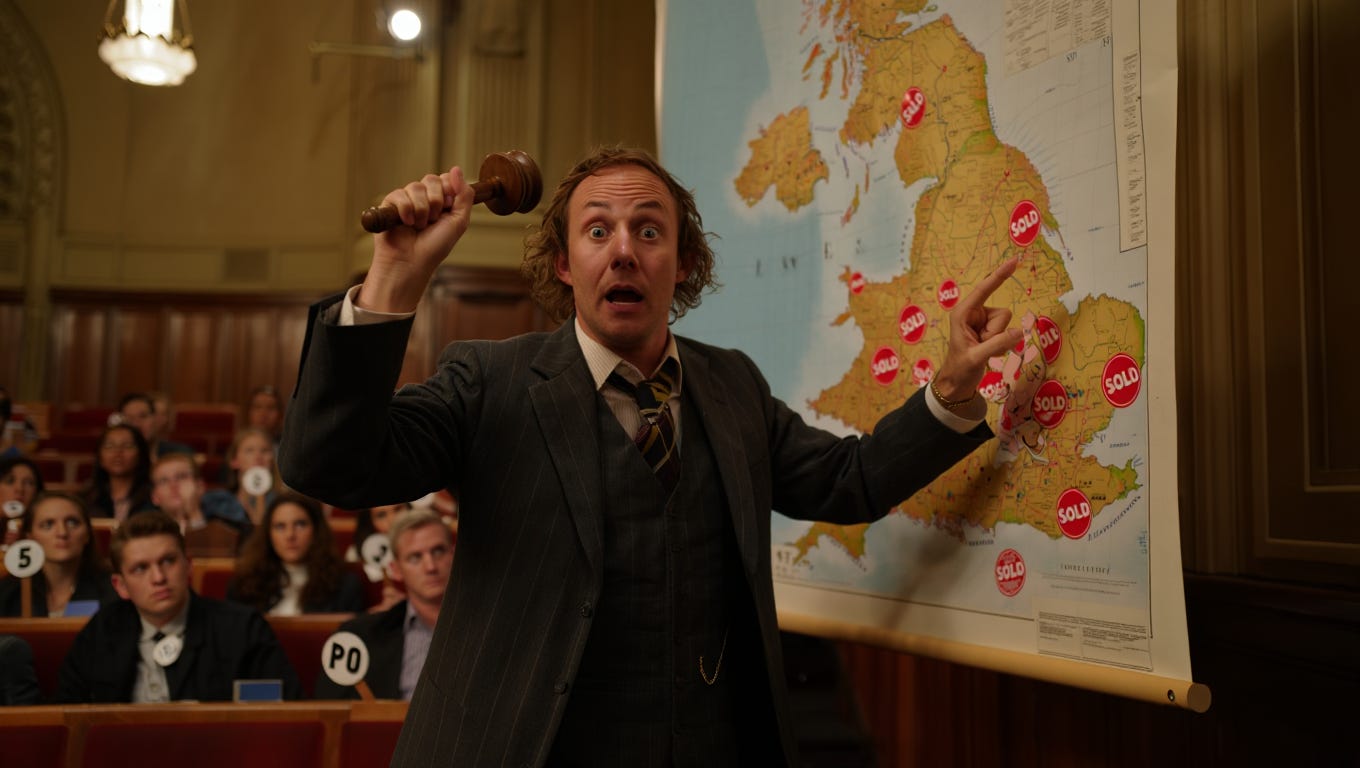Britain sold for parts: New report exposes how four decades of privatisation have left families paying through the nose
Think tank warns “failed experiment” has drained £200bn from essential services while households suffer soaring bills, crumbling infrastructure and collapsing trust
Britain has been “ripped off” for more than forty years by a vast privatisation experiment that has left families paying higher bills for worse services while billions leak into the pockets of shareholders, a damning new report has claimed.
The study, Who Owns Britain?, from the think tank Common Wealth, argues that the essentials of life—from water and energy to schools, nurseries and even care homes—are now controlled by corporations whose priority is profit, not people.
It paints a devastating picture of a nation that once had the highest levels of public wealth in the G7 but, after shedding assets at an extraordinary pace between 1981 and 1996, now languishes at the very bottom—and has stayed there ever since.
A “privatisation premium” on every bill
Households are paying what the authors call a “privatisation premium” on everything from heat and light to train tickets. In 2024, nearly a quarter of the typical energy bill—a staggering £416—was profit. Almost a third of water bills, too, flow straight to investors in the form of dividends and interest payments.
Meanwhile, the supposedly “competitive” railway industry is kept alive only by taxpayers: half of its income now comes from direct and indirect public subsidy, even as fares rise and services deteriorate.
The findings echo what millions of ordinary Britons already know from daily life. Public transport is unreliable, energy costs are punishing, nurseries are unaffordable, housing is scarce and waterways are polluted.
£200bn siphoned away
The scale of extraction is shocking. Since the 1990s, shareholders in privatised water, energy, mail and transport companies have received at least £200 billion—and that’s a conservative figure given gaps in the data.
In just one year, 2023, the nine largest electricity generators and energy networks splurged £8bn on dividends, share buybacks and interest payments. Rail firms have paid out more than 100 per cent of their post-tax profits in dividends throughout the last decade.
“Billions leak out of essential services every year that could be reinvested”, the think tank states.
Broken promises
Privatisation, its advocates once promised, would deliver efficiency, innovation and low costs. Instead, Common Wealth argues, it has created dysfunction and unfairness. Bus operators now take almost half their income from subsidy, yet commercial routes have fallen by a fifth since 2019.
The additional operating costs of running the passenger rail system under private ownership, compared to public ownership, totalled an astonishing £79bn between 1997 and 2020.
Nor has the private sector delivered the investment Britain so desperately needs. The energy sector invested twice as much as a share of GDP under public ownership than it has since privatisation. The new privatised grid rollout is forecast to cost 1.7 times more per gigawatt than the publicly-owned system.
Water firms, meanwhile, have gorged on debt far beyond regulators’ guidance every single year since 2002, leaving them dangerously fragile. And while they reward shareholders, they have failed to build a single new major reservoir in more than three decades.
“A political choice”
The report concludes that the UK’s current plight is not inevitable but the result of deliberate policy choices over decades. Other nations have shown that alternatives exist: Paris reduced water bills by eight per cent after taking supply back into public hands, while Denmark’s state-run childcare remains affordable and high quality.
As Common Wealth argues, Britain must decide whether to persist with a system that extracts wealth “from cradle to grave”—or rebuild one that puts public need before private greed.



